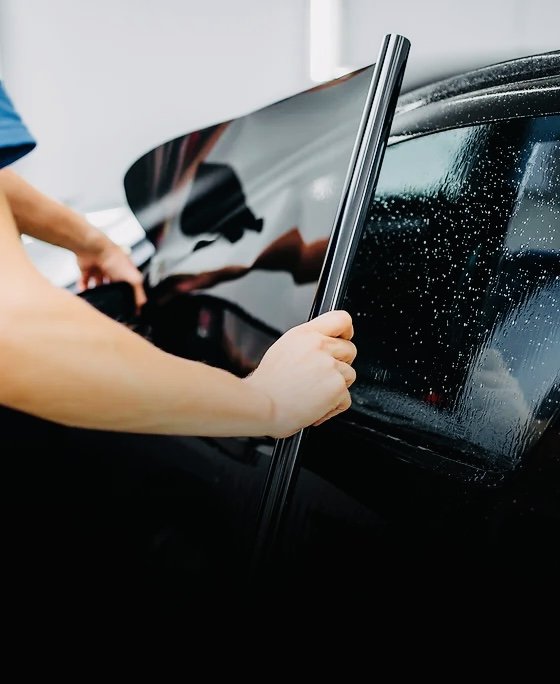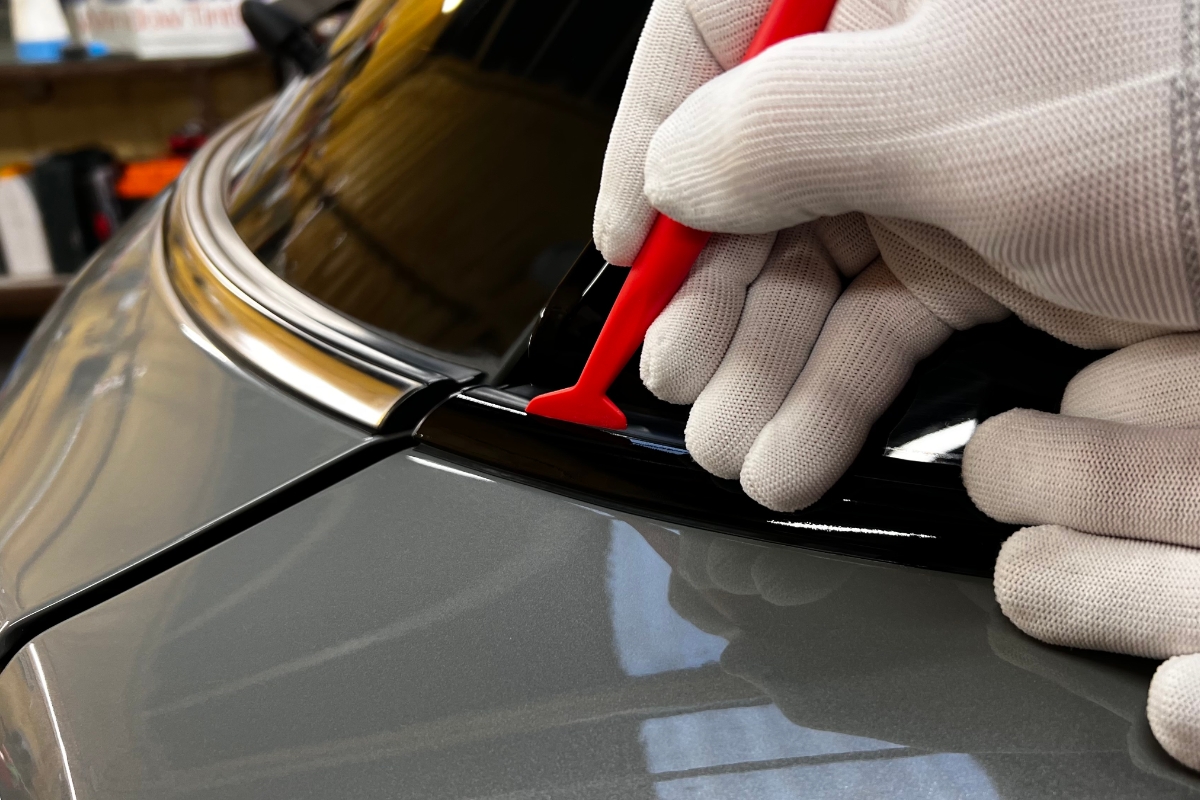Professional Window Tinting Services for Better Comfort and Style in Your Vehicle
Professional Window Tinting Services for Better Comfort and Style in Your Vehicle
Blog Article
Window Tinting Rules: What You Required to Know Before Tinting Your Auto
Understanding home window tinting legislations is important for any type of car proprietor taking into consideration tinting their cars and truck. Rules vary dramatically from state to state, establishing certain limitations for Visible Light Transmission (VLT) portions, specifically for front-side home windows and windshields. Failing to abide by these legislations can result in penalties, the necessity to get rid of the color, and issues with insurance. As you ponder enhancing your automobile's look and functionality, it is essential to understand not only the legal effects however additionally the useful considerations that feature choosing the ideal color. What variables should you prioritize in your decision-making procedure?
Relevance of Recognizing Color Laws
Comprehending home window tinting regulations is critical for vehicle owners to guarantee conformity with state regulations. These legislations determine the allowable degrees of color darkness and reflectivity, which can substantially differ from one territory to an additional. Falling short to follow these regulations can cause fines, obligatory removal of the tint, and prospective complications during automobile examinations.
Moreover, comprehending these laws helps car owners make notified decisions concerning their tinting alternatives. Various kinds of home window movies give various benefits, such as UV security, heat rejection, and glow decrease. Without expertise of the lawful limitations, car owners risk picking items that might eventually lead to legal problems.
Furthermore, awareness of tinting regulations cultivates a much safer driving environment. window tinting. Exceedingly dark tints can impair presence, boosting the danger of crashes, especially during the night or in adverse climate condition. Law enforcement firms additionally use these regulations to ensure roadway safety and security, making compliance not just a lawful responsibility however an individual responsibility
State-Specific Tint Rules
Each state in the united state has developed its very own particular regulations regarding home window tinting, showing a diverse array of demands and standards. These regulations can differ considerably, influencing how automobile owners come close to installment and compliance. Some states enable darker tints on rear windows while enforcing stringent restrictions on front-side home windows.
Additionally, guidelines usually specify permitted color products and colors. Particular states prohibit reflective tints entirely, while others might allow them to a minimal level. Moreover, some jurisdictions mandate that automobiles with tinted windows show a sticker label showing conformity with state laws, giving a clear identification for law enforcement.
Enforcement of these laws additionally differs; some states are extra aggressive, conducting random checks, while others depend on problems or visible infractions to start enforcement. Car proprietors must be mindful that failing to follow state-specific tint guidelines can cause fines, required elimination of unlawful colors, or both.

Legal Tint Percentages
Determining the lawful color portions is essential for vehicle proprietors looking for to follow state guidelines. Each state has certain laws controling just how much light needs to pass with the windows of a vehicle, which is revealed as a percentage referred to as Noticeable Light Transmission (VLT) This percent varies substantially throughout states and can depend upon the sort of window-- front side, back side, and windshield.
For example, some states enable as little as 20% VLT on front side home windows, while others might permit approximately 50%. Windshield tinting is frequently more limited, with numerous territories allowing just a narrow band of tint at the top of the windshield. In comparison, rear home windows normally have much more tolerant policies, with some states allowing darker tints.
It is important for lorry proprietors to acquaint themselves with their local regulations to prevent possible legal problems. This includes understanding how go to this site VLT is determined, as it can differ based upon the sort of home window film made use of. Staying educated about these laws makes certain compliance and advertises safe driving problems for both the lorry proprietor and others when driving.
Repercussions of Non-Compliance
Failing to follow home window tinting regulations can bring about significant consequences for vehicle owners. One of the most immediate effect is the capacity for website traffic quits and citations from police. Policemans educated to identify unlawful color levels may provide penalties, which can vary by jurisdiction yet frequently range from modest to significant quantities. Repetitive offenses may result in raised charges, including higher fines or extra factors on a vehicle copyright.

Insurer may also impose penalties for non-compliance, as illegal alterations can be considered as a violation of plan terms. If a case takes place., this could affect protection rates or lead to difficulties in cases.
Ultimately, the consequences of non-compliance have a peek at this site expand beyond immediate punitive damages; they can affect a motorist's insurance coverage rates, legal standing, and total automobile value, emphasizing the importance of sticking to regional home window tinting regulations.
Tips for Choosing Tinting Options
Recognizing the ramifications of non-compliance highlights the significance of making informed selections when picking home window tinting choices. Firstly, acquaint yourself with your state's details legislations relating to color darkness and reflectivity. Each state has one-of-a-kind policies that determine the acceptable limits, so ensure you stay within these guidelines to stay clear of penalties.
Second of all, consider the sort of color material. Alternatives include colored, metalized, and ceramic tints, each offering varying degrees of warm being rejected, UV protection, and durability. As an example, ceramic colors offer premium warm resistance without interfering with electronic tools, making them a popular option.
Furthermore, analyze your key function for tinting. If you look for boosted personal privacy, choose darker tints; nonetheless, bear in mind that this might influence exposure during the night. Alternatively, if glow decrease and UV protection are your primary worries, lighter colors might suffice.
Finally, consult with an expert installer that is knowledgeable about regional guidelines and can suggest premium products suited to your needs (window tinting). Taking these factors into account will ensure you make a well-informed choice, eventually improving both your car's aesthetics and functionality
Conclusion
In conclusion, knowledge with window tinting laws is vital prior to applying color to a car. By understanding lawful requirements and selecting suitable tint materials, automobile owners can attain aesthetic improvement while remaining certified with relevant regulations.
Comprehending home window tinting legislations is necessary for any type of automobile proprietor taking into consideration tinting their vehicle.Recognizing window tinting legislations go to this web-site is important for lorry owners to make sure conformity with state regulations. Some states enable darker tints on rear windows while imposing stringent restrictions on front-side home windows.
In contrast, rear windows commonly have more lenient regulations, with some states permitting darker tints. (window tinting)
In final thought, knowledge with window tinting legislations is necessary prior to using color to a vehicle.
Report this page